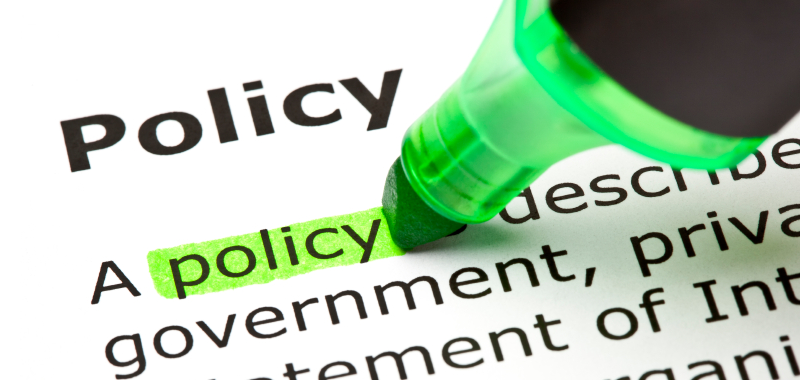Introduction
In a fast-moving political world, understanding new laws and regulations can feel like decoding a secret message. Enter the Government Gazette—an official publication that prints every law, regulation, and government notice. By studying its pages, citizens, journalists, and analysts gain direct insight into politics and policy as soon as decisions become official. In this article, we’ll explore what the Government Gazette is, why it matters, and how you can use it to stay informed, hold leaders accountable, and navigate the maze of public policy.
What Is the Government Gazette?
The Government Gazette is the formal record of government actions. It typically includes:
- New Laws and Amendments: Acts of parliament or congress and any changes to existing statutes.
- Regulations and Rules: Detailed guidance from ministries or agencies on how to apply laws.
- Public Notices: Announcements of public consultations, land acquisitions, or licensing opportunities.
- Appointments and Dismissals: Names of new judges, ambassadors, and senior civil servants.
- Tenders and Contracts: Invitations to bid on government projects.
Each entry in the Gazette is legally binding, meaning you can’t claim ignorance of a rule because it’s published there.
Historical Role of the Gazette
Government Gazettes date back centuries. In the 17th century, England’s London Gazette published official news, proclamations, and notices. Colonial governments worldwide adopted similar systems. Before the internet, the Gazette was the only way to know about laws or appointments beyond local papers. Today, it remains the gold standard for official information—unchallenged by rumors or media spin.
Transparency and Accountability
Legal Certainty
When a law appears in the Gazette, it enters into force on a specified date. This ensures citizens and businesses have clear, uniform notice of the rules that govern them.
Watchdog Function
Journalists and watchdog groups monitor the Gazette for signs of policy shifts or questionable appointments. Finding a surprise regulation buried in a late-Friday issue can signal a government trying to avoid public scrutiny.
Public Feedback
Many governments require a “notice and comment” period after Gazette publication, allowing individuals and organizations to submit feedback before final rules are set. This process fosters democratic participation.
Tracking Policy Changes in Real Time
Weekly or Daily Issues
Most Gazettes publish on a set schedule—daily, weekly, or biweekly. Subscribing to email alerts or RSS feeds ensures you get each issue as soon as it’s released.
Digital Archives
Modern Gazettes are fully searchable online. You can filter by keyword, date, or government department to find all mentions of “environmental standards” or “tax exemptions.”
Comparison Tools
Some platforms highlight differences between the current Gazette and prior versions, so you can spot amendments instantly rather than read every section line by line.
A Research Powerhouse for Journalists and Scholars
Primary Source Material
Academics cite Gazette entries as primary evidence of when and how governments acted. This direct link to the official record boosts the credibility of research on legislative intent or regulatory outcomes.
Historical Analysis
By diving into decades of back issues, researchers chart long-term trends—such as the growth of environmental regulations or changes in labor laws—and connect them to real-world outcomes.
Investigative Leads
Investigative journalists use the Gazette to uncover conflicts of interest, undisclosed contracts, or sudden regulatory changes that benefit specific industries.
Empowering Citizens and Civic Engagement
Know Your Rights
When new laws or zoning rules appear in the Gazette, homeowners can learn how proposed changes affect property values or building permissions.
Community Action
Local groups often use Gazette notices to spot threats—like plans for industrial developments—and mobilize public comment campaigns within tight deadlines.
Legal Recourse
Individuals challenging a permit or tax assessment cite the exact regulation in the Gazette to support appeals before tribunals or courts.
The Digital Evolution of the Gazette
Online Platforms
Government websites now host interactive Gazettes with advanced search features, user accounts, and mobile apps—making it easier than ever to stay updated.
Open Data Initiatives
Some countries publish Gazette data in machine-readable formats (JSON, XML), enabling third-party developers to build custom apps, visualizations, and alert services.
Integration with Law Libraries
Legal research databases like Westlaw or LexisNexis often link Gazette entries directly to related case law, commentary, and legislative histories.
Case Study: Spotting a Hidden Regulation
In 2022, citizens in Country X discovered a significant tax increase buried in the final pages of a late-night Gazette issue. Thanks to a vigilant local reporter, the story went viral, prompting protests and forcing the government to extend the comment period. This example shows how the Gazette can both conceal and reveal critical policy moves.
Best Practices for Using the Gazette
- Subscribe to Alerts: Sign up for official email bulletins or RSS feeds for instant notice of new issues.
- Master Search Tools: Use advanced filters—jurisdiction, department, date range—to zero in on relevant items.
- Set Watchlists: Many platforms let you track specific topics, like “public health regulations” or “judicial appointments.”
- Read Summaries First: Some services offer headnotes or abstracts to save time; dive into full text only when needed.
- Cross-Check with Secondary Sources: Verify interpretations with reputable commentaries or legal analyses.
Challenges and Limitations
Legal Jargon
Gazette texts often use formal, technical language that can be hard to follow. Glossaries and plain-language guides help lay readers.
Information Overload
High-frequency issues and voluminous entries can overwhelm busy readers. Automated alerts and curated digests filter noise.
Access and Cost
While many Gazettes are free online, some jurisdictions charge for print copies or advanced search features. Public libraries and universities often provide free access to paid services.
Conclusion
The Government Gazette is more than a dry bulletin board—it’s a powerful tool for anyone wanting to decipher politics and policy. By presenting new laws, regulations, and official notices in one authoritative place, the Gazette supports transparency, accountability, and public engagement. Modern digital platforms, open data, and advanced search tools make it easier than ever to track policy changes in real time. Whether you’re a journalist chasing a scoop, a lawyer building an argument, an academic researching regulation, or a citizen safeguarding community interests, mastering the Gazette gives you direct access to the heartbeat of government action. Start exploring today—subscribe to alerts, learn the search features, and harness the Gazette to stay informed, engaged, and ahead in the complex world of politics and policy.









